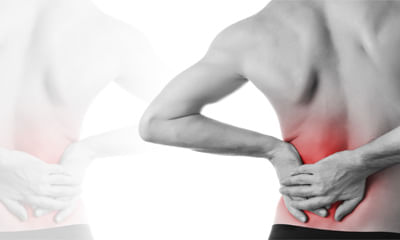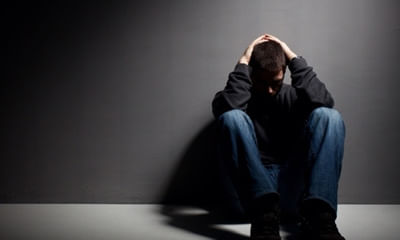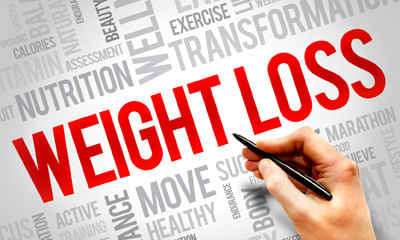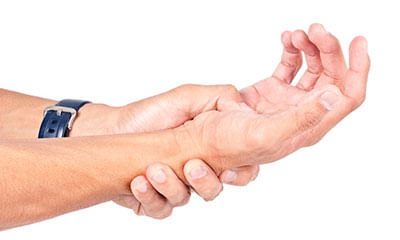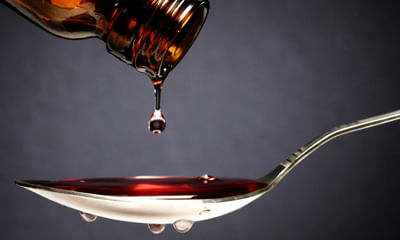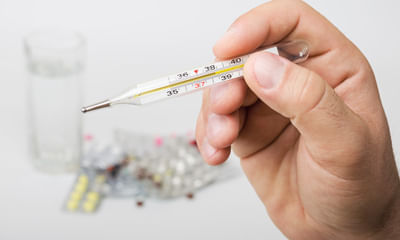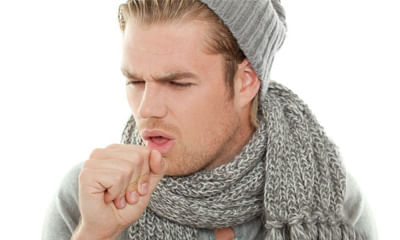Sudden Shivering And Shaking
I feel pain in hands and legs when I lift even small objects. Have little shivering in hand. I use computers most`of the ...
Ask Free Question
There are some infections that can cause uncontrollable shivering. In fact, sudden chills and uncontrollable shaking are often one of the first signs of any kind of viral or bacterial infection in the body. Blood poisoning (also named sepsis or septicemia) is a severe infection that is spread through the blood and one of its symptoms is uncontrollable shivering. Low blood sugar levels can cause your body to start shivering and shaking uncontrollably. Low blood sugar levels commonly affect people with diabetes but they can also affect otherwise healthy people. For example, alcohol, exercise, and some herbal supplements can also cause blood sugar levels to drop and make you shiver uncontrollably. You will have noticed that uncontrollable shivering can be a sign of some serious medical conditions and you should always see a doctor in those cases to receive professional medical help.
Please advice what to do when my anxiety on top, not only in my work in general I have anxiety issue, like for every thi ...
Ask Free Question
Anxiety is a very normal emotion, which gives rise to feelings of nervousness every now and then. An anxiety disorder is a serious medical condition in which people experience a high degree of distress and mental trauma, which hinders a normal life. People suffering from this medical condition experience high levels of anxiety and nervousness almost all the time. Here are the cardinal symptoms that indicate you're suffering from an anxiety disorder. 1. Troublesome & excess worry - this condition prevails if you worry about the day to day activities too much on a regular basis. It is identified when you start taking too much stress about very common and routine things, related to life or work which tends to affect you in an adverse way. A noticeable sign of excessive worry can be too much fatigue. 2. Lack of sleep/irregular disturbed sleep - problems in falling asleep at the right time and problems in maintaining an uninterrupted sleep are two signs that indicate you have an anxiety disorder. 3. Baseless / irrational fears - this symptom is not generalized; instead, it is specific and subjective in relation to a particular thing or situation. The fears that are experienced under this category are sudden and unexpected in nature and there is no fixed rationale behind these fears. One may ear of death or accident or fall from a plane and so on. 4. Muscle pain - muscle discomfort and pain are one of the leading physiological causes of an anxiety disorder. The pain felt is chronic and pervasive, and is very common among people facing situations of anxiety. If you are exposed to constant periods of anxiety, you will experience fatigue, muscle pains and lethargy or unwillingness to work. 5. Unexplained indigestion - problems related to the digestive system are also a sign of anxiety disorder. In this case, you may face constant digestive problems accompanied by a common disorder called ibs (irritable bowel syndrome). Ibs refers to an anxiety situation in the digestive tract, which is characterized by a sudden urge to defecate on eating, stomach aches, cramping, bloating, gas, constipation, and/or diarrhoea. Apart from the above-mentioned symptoms, other symptoms of an anxiety disorder include stage fright, self- consciousness, panic attacks, memory flashbacks, perfectionism, compulsive behaviours, self- doubt, and such others. 5. Say an encouraging statement. Positive, accurate statements can help to put things into perspective. See these examples: “anxiety is just a feeling, like any other feeling.” and “this feels bad, but I can use some strategies to cope with it.” 6. Stay connected to others. Social support is vital to managing stress, today, call a loved one, scheduled to go to lunch with a close friend. Talking with others can do a world of good. Another option is to get together and engage in an activity that improves your anxiety, such as taking a walk, sitting on the beach or going to a yoga class. 7. Avoid alcohol and caffeine. Managing anxiety is as much about what you do as what you don’t do. And there are some substances that exacerbate anxiety. Caffeine/alcohol is one of those substances. The last thing people with anxiety need is a substance that makes them feel more turned on, which is exactly what caffeine/alcohol does. 8. Avoid mood changing drugs. “while drugs and alcohol might help to reduce anxiety in the short term, they often do just the opposite in the long term,” even the short-term effect can be harmful. Experts have treated countless clients whose first panic attack occurred while they were taking drugs such as marijuana, ecstasy or lsd. “panic attacks are bad enough if you are straight and sober, so imagine how bad they are if you are high, and can’t get untied until the drug wears off.” 9. Do something you enjoy. Engaging in enjoyable activities helps to soothe your anxiety. For instance, today, you might take a walk, listen to music or read a book, 10. Take a break. It’s also helpful to build breaks into your day. As it is said, this might be a “simple change of pace or scenery, enjoying a hobby, or switching ‘to-do’ tasks.” “breaking from concerted effort can be refreshing.” 11. Solve problem it is suggested considering how you can address the stressors that are causing your anxiety. Today, make a list of these stressors and next to each one, jot down one or two solutions. 12. Read a book. There are many valuable resources on anxiety, which teach you effective coping skills. Some recommended are dying of embarrassment for people with social anxiety; the bdd workbook for body dysmorphic disorder; the imp of the mind and the ocd workbook for obsessive-compulsive disorder. And it is suggested, "stop obsessing" for adults with ocd (and up and down the worry hill for kids with ocd). For people with panic attacks, it is suggested don’t panic: taking control of anxiety attacks. For a general overview of cognitive-behavioural therapy for anxiety,
I am 28 years old male. I am overweight and been working towards getting fit. I have been working out (bodyweight exerci ...
Ask Free Question
Build a better breakfast, Aim to eat anywhere between 400 and 500 calories for your morning meal, and make sure you're including a source of lean protein plus filling fat (e.g. eggs, beans, unsweetened greek yogurt, nuts or nut butters) and fiber (veggies, fruit or 100% whole-grains). Prioritise real, whole foods, means filling up on fresh fruits and veggies, whole grains, low-fat dairy and lean protein. Know your limits with salt Skip sugary beverages Ignore the gimmicks/weight loss hypes Eat your H2O Munch on mineral-rich foods Resist the urge to skip a meal Take a hike or a walk Go to bed/ no sleep deprivation Eat spicy foods seriously cayenne peppers/jalapeños Buy a set of 5-pound weights, strength training builds lean muscle tissue which burns more calories.
Doctor I get an attack in which my face becomes hot and I am not able to walk properly like normal people do keeping the ...
Ask Free Question
This seems to be due to severe anxiety or panic attack Along with medications she also needs emotional support Follow advise 1.Involvement in creative activites like music, dance etc 2.contact spiritual organization in your city like Brahmakumaris they teach meditation free of cost and this meditation will surely help 3. Daily outing morning evening and spend some time with nature like in Park will certainly help 4. Soft music and involvement in religious/ spiritual programme will help certainly you also need counselling, consult for further management.
I'm playing basketball since few days and my hands shiver whenever I hold something, it shakes while I try to grasp some ...
Ask Free Question
If you have started it and don't have history of any disease then it may just because of sudden increased exercise to your muscles which are not habituated to it... But to cope up with it take some nutritional supplements.
My daughter is 3.5 years old. Today she had loose motion and after that she got the fever 102, we given her Nobel-Plus 5 ...
Ask Free Question
frisium is a drug for seizures your child might have had either shivering or seizures which can be possible in such high grade fever even without any structural cause in the brain.
What is symptoms of a h1n1 virus and aids also tell me what is symptoms is a flu? ...
Ask Free Question
H1n1 virus cause flu and the symptoms include cold, cough, fever, body pain, vomiting and diarrhea, aids symptoms include loss of weight, loss of appetite, fever, cough and it may be associated with tbd.
What are the symptoms of flu? If there is more than you can explain please explain. ...
Ask Free Question
Hi, Symptoms of influenza can start quite suddenly one to two days after infection. Usually the first symptoms are chills or a chilly sensation, but fever is also common early in the infection, with body temperatures ranging from 38 to 39 °C (approximately 100 to 103 °F). Many people are so ill that they are confined to bed for several days, with aches and pains throughout their bodies, which are worse in their backs and legs. Symptoms of influenza may include: Fever and extreme coldness (chills shivering, shaking (rigor)) Cough Nasal congestion Runny nose Sneezing Body aches, especially joints and throat Fatigue Headache Irritated, watering eyes Reddened eyes, skin (especially face), mouth, throat and nose Petechial rash In children, gastrointestinal symptoms such as diarrhea and abdominal pain, (may be severe in children with influenza B). It can be difficult to distinguish between the common cold and influenza in the early stages of these infections, but a flu can be identified by a high fever with a sudden onset and extreme fatigue. Influenza is a mixture of symptoms of common cold and pneumonia, body ache, headache, and fatigue. Management & Treatment: People with the flu are advised to get plenty of rest, drink plenty of liquids, avoid using alcohol and tobacco. Medication: Take homoeopathic medicines by Schwabe - Alpha-CF and Alpha-RC, both after every 2 hrs. For 5 days.
Hello I want to ask only that what will be the symptoms of common cold, malaria, dengue,. ...
Ask Free Question
Common cold and denguevwi have almost similar symptoms like cough, cold, running of nose bodyache headeche sometimes may have rashes in the whole body nausea, vomiting, fever etc in case of malaria f intermittent fever associated with shivering and subsequently sweating and fever comes down malaria i'd caused by infected bitenof female anopheles mosquito whereas the dengue and flu caused by viral infection.
What is the symptoms of flue? I am suffering from flue oftenly so what is the reason of it? ...
Ask Free Question
Hello, Hi, these are the symptoms of flu :- Body as well as muscle aches Low or high fever Inflammation of the pharynx Running nose Nasal congestion Sore throat Headache Redness and burning sensation in eyes Cough Muscle and joint pains Skin rashes Diarrhoea. Take Alpha WD , 15 drops with water twice daily to enhance your immunity.

